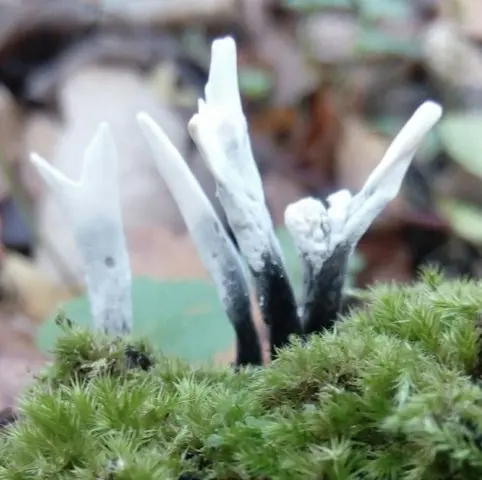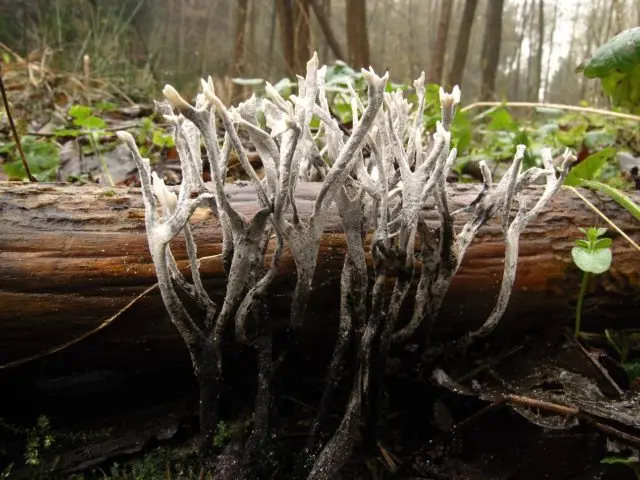Contents
There are mushrooms of a rather unusual and bizarre shape, resembling various objects. Xylaria Hypoxylon is a fruiting body belonging to the family Xylariaceae, genus Xylaria, species Xylaria Hypoxylon.
What do xylaria hypoxylon look like
The shape of this ascocarp resembles deer antlers, and from a distance the mushrooms look like coral polyps. They consist of several cylinders emerging from under rotten leaves in one heap. As they grow, the fruiting bodies become flat, twisted and bent. The flesh of the body is hard and thin. They are black at the base, dark gray above. No wonder the British call it “soot on a candle.” Old xylaria take on a charcoal color. The surface in the lower part is velvety, with short hairs.
The height of Xilaria Hypoxylon reaches 8 cm. The width reaches 8 mm. These are marsupials: ascospores of gray or cloudy white color, similar to buds or cones (perithecium), are scattered throughout the body. Under a microscope, cylindrical bags on a high leg can be distinguished. They have small holes in them, from where ripe spores are released.

Where do xylaria hypoxilon grow
These mushrooms grow in deciduous, rarely coniferous forests on rotten leaves or old stumps. On the territory of our country, they can be seen in the northern part.
But they are common not only in the northern hemisphere: they are also found in Cuba, and even in Australia. Sometimes mushroom pickers come across small groups of “deer antlers”. But this is not common: these are rare species of Xylaria. They ripen in autumn before winter. But they remain for a long time: even in spring, their dried and blackened bodies protrude from under the snow.

Is it possible to eat xylaria hypoxylon
Mushroom Xiliaria hypoxilone is considered inedible due to its small size, lack of a pleasant mushroom taste, and dry pulp. There is no information about the toxicity of these ascocarps.
Medicinal properties
Mushrooms can be used for the production of medicines, as their extracts have the following properties:
- They have hemagglutinating effects, which allows them to be used to diagnose various viral diseases.
- Their antiproliferative properties can inhibit the growth of cancer cells.
- They are able to stop the mutagenic effects of chemical radiation.
Conclusion
Xylaria Hypoxilone and its properties are not fully understood. Research on this fungus is ongoing. There are theories about the possibility of using its bioactive components for the treatment of cancer and immunodeficiency.









